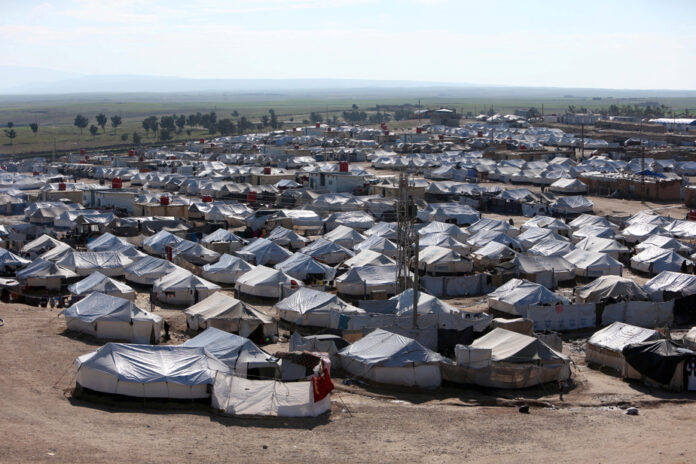The lawyer for two Canadian women and three teenage girls who were due to be repatriated from northeast Syria earlier this month says they were abused by guards and are being held in a camp that houses mostly members of the family of those with links to Daesh.
Zachary Al-Khatib of Edmonton said one of the two women was able to make a brief phone call to a family member in Canada early Tuesday before the line was cut.
She would have indicated that these women were all alive and had been transferred to the Roj camp. But they were allegedly abused, needed medical attention and had all their possessions confiscated, the woman said.
The lawyer stressed that this call had obviously been very concerning for the family, after 11 days without news.
Under an agreement with Global Affairs Canada, these five women were to be transported from Al-Hol camp to Roj camp, to join four other women and 10 children. These 14 individuals returned to Canada on April 6.
According to Al-Khatib, while those still in Syria were concerned about their safety with the transfer between the camps, Canadian officials told them that they had communicated with the Kurdish forces, who run the Al-Khatib camp. Hol.
The lawyer believes that Canada needed to take immediate action to ensure that these women and girls are safe and repatriated. “The government has been silent about it,” he said. He must provide answers to the family and to the population. »
Al-Khatib said he did not know why these two women, aged 41 and 33, originally traveled to Syria, but he was not shown any evidence of criminal intent or violations of the law.
Global Affairs Canada said in a statement it had “credible information” that the women were in the Roj camp, but declined to comment further, citing confidentiality and operational security.
“Canada has taken extraordinary steps to repatriate all of the Canadian women and children identified in the ‘Bring Our Loved Ones Home’ litigation. As long as conditions permit, we will continue this work,” the statement read.
Letta Tayler, deputy director of the crisis and conflict division at Human Rights Watch, agreed that it is essential that the Canadian government find out what happened and explain it to the family and to Canadians.
“This incident involving the five people who have been left behind is emblematic of the problems inherent in this illegal detention system, the process by which Canada and other countries outsource responsibility for their nationals to a non-state actor in a war zone, she said. In this context, things will not necessarily go smoothly. »
According to Ms. Tayler, many other women claimed to have been detained at Al-Hol or other camps — and, in some cases, abused while being transferred from Al-Hol to Roj camp. She said some women claimed they were taken to a cell they called the “Red Jail”, which she said resembled a detention area in Al-Hol.
“Some of the testimonies I’ve heard indicate that women and children are being held in rooms that are essentially latrines,” she said. These are horrible conditions. »
The international non-governmental organization said the medical care, clean water, shelter and education in these camps are “grossly inadequate” and called on countries with detainees to repatriate their nationals.
Ottawa lawyer Lawrence Greenspon reached an agreement in January to repatriate 19 Canadian women and children who had been part of a lawsuit against Ottawa in Federal Court. The government is appealing a judgment ordering the repatriation of four men detained in Syria.
Three of the four women who returned to Canada this month were arrested upon arrival, under a terrorism-related peace bond application; they have since been released on bail.
Two other women who had been repatriated from Syria with two children in October were also arrested upon arrival; one of them faces criminal charges.
“We have both the laws and the staff and there’s a whole department, Justice, that’s set up to deal with these kinds of lawsuits,” Greenspon said. There is absolutely no reason not to bring these Canadian women home and treat them appropriately within the Canadian criminal justice system, instead of leaving them to rot in jails and detention camps. »


















